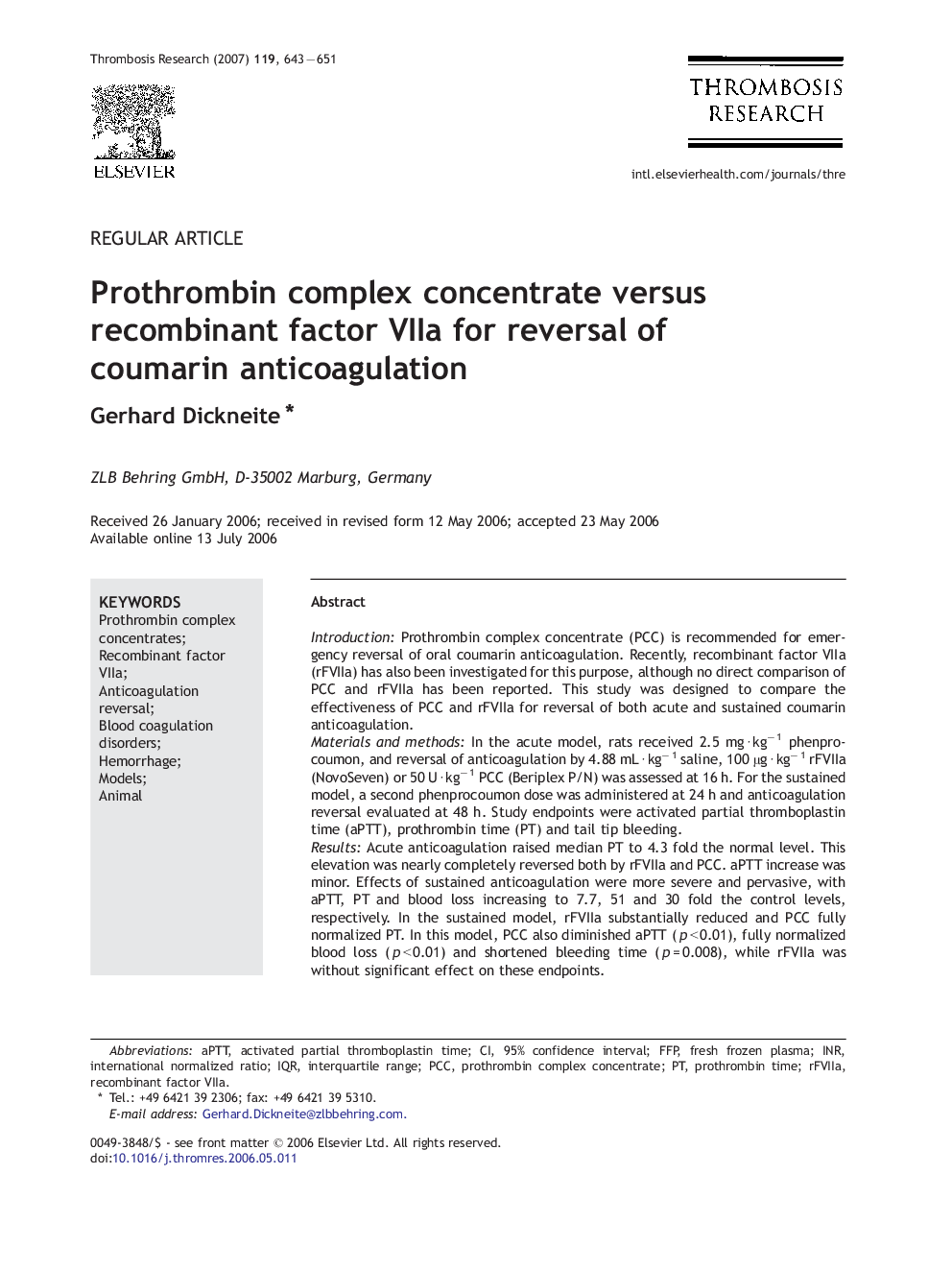| Article ID | Journal | Published Year | Pages | File Type |
|---|---|---|---|---|
| 3029923 | Thrombosis Research | 2007 | 9 Pages |
IntroductionProthrombin complex concentrate (PCC) is recommended for emergency reversal of oral coumarin anticoagulation. Recently, recombinant factor VIIa (rFVIIa) has also been investigated for this purpose, although no direct comparison of PCC and rFVIIa has been reported. This study was designed to compare the effectiveness of PCC and rFVIIa for reversal of both acute and sustained coumarin anticoagulation.Materials and methodsIn the acute model, rats received 2.5 mg·kg− 1 phenprocoumon, and reversal of anticoagulation by 4.88 mL·kg− 1 saline, 100 μg·kg− 1 rFVIIa (NovoSeven) or 50 U·kg− 1 PCC (Beriplex P/N) was assessed at 16 h. For the sustained model, a second phenprocoumon dose was administered at 24 h and anticoagulation reversal evaluated at 48 h. Study endpoints were activated partial thromboplastin time (aPTT), prothrombin time (PT) and tail tip bleeding.ResultsAcute anticoagulation raised median PT to 4.3 fold the normal level. This elevation was nearly completely reversed both by rFVIIa and PCC. aPTT increase was minor. Effects of sustained anticoagulation were more severe and pervasive, with aPTT, PT and blood loss increasing to 7.7, 51 and 30 fold the control levels, respectively. In the sustained model, rFVIIa substantially reduced and PCC fully normalized PT. In this model, PCC also diminished aPTT (p < 0.01), fully normalized blood loss (p < 0.01) and shortened bleeding time (p = 0.008), while rFVIIa was without significant effect on these endpoints.ConclusionsIn a sustained anticoagulation animal model designed to simulate standard long-term oral coumarin therapy in patients, PCC was more effective than rFVIIa in restoring hemostatic function.
